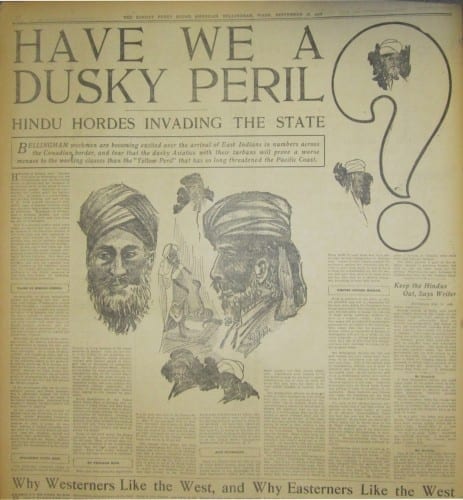The press called them Hindus, but in fact most were Sikh immigrants from the northwest Indian region of Punjab. Early in 1906, they arrived in Bellingham, Washington, seeking jobs in the logging industry, and quickly proved to be desirable employees. “We cannot get white men who will remain steadily at their work,” one lumber mill owner told the Bellingham Herald. “A large number are transient and work only for ‘whisky money’ leaving the company in the lurch just at the time that their services are most desired.”
Because observant Sikhs, whose religion prohibited becoming intoxicated, had little interest in “whisky money,” they filled so many jobs it soon angered the locals.
“Hordes of Hindus have fastened their eyes on Bellingham and the northwestern part of the United States in general,” warned the city’s daily newspaper Puget Sound American, “and the vanguard of the invasion which in the minds of many discerning people, threatens to overshadow the ‘yellow peril,’ has reached this city.”
Tensions reached a breaking point a year after the publication of this front-page article. As reported across the country, in September 1907, a mob of disgruntled white workers rounded up hundreds of Sikhs, beat them in the street, and then forced them out of town. Many went north to British Columbia; others went south to California, where a Punjabi-Mexican community briefly flourished.
While we ponder today whether the recent murder of three Muslim students in North Carolina was a hate crime or a merely an argument over parking gone horrifically wrong, it’s worth remembering that acts of violence committed against religious groups in American history have rarely had a single cause. While some may see Bellingham’s anti-Sikh Genocide as a hate crime, others might claim it was simply a labor dispute.


